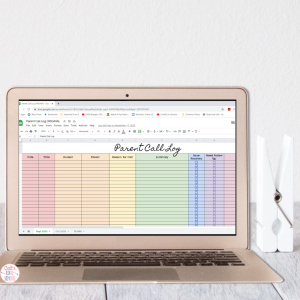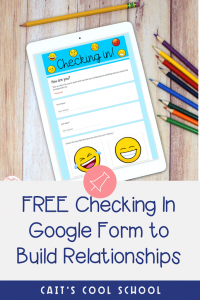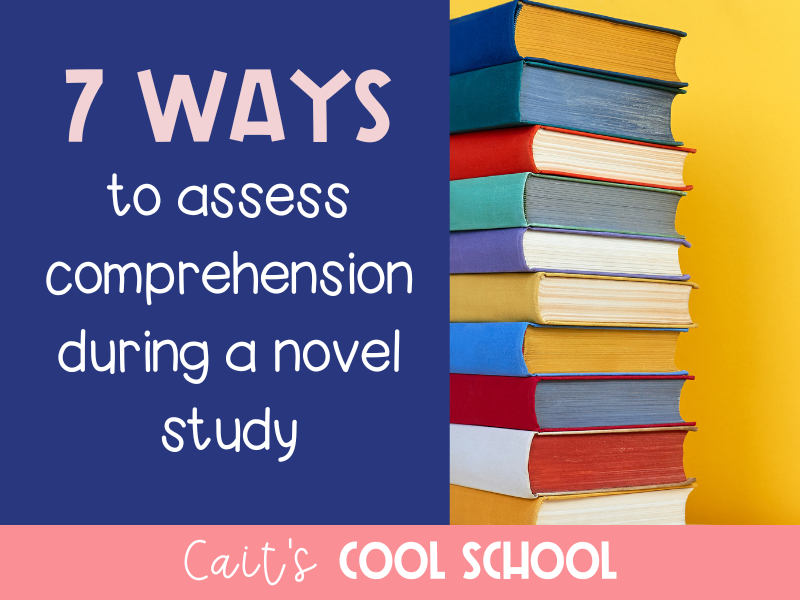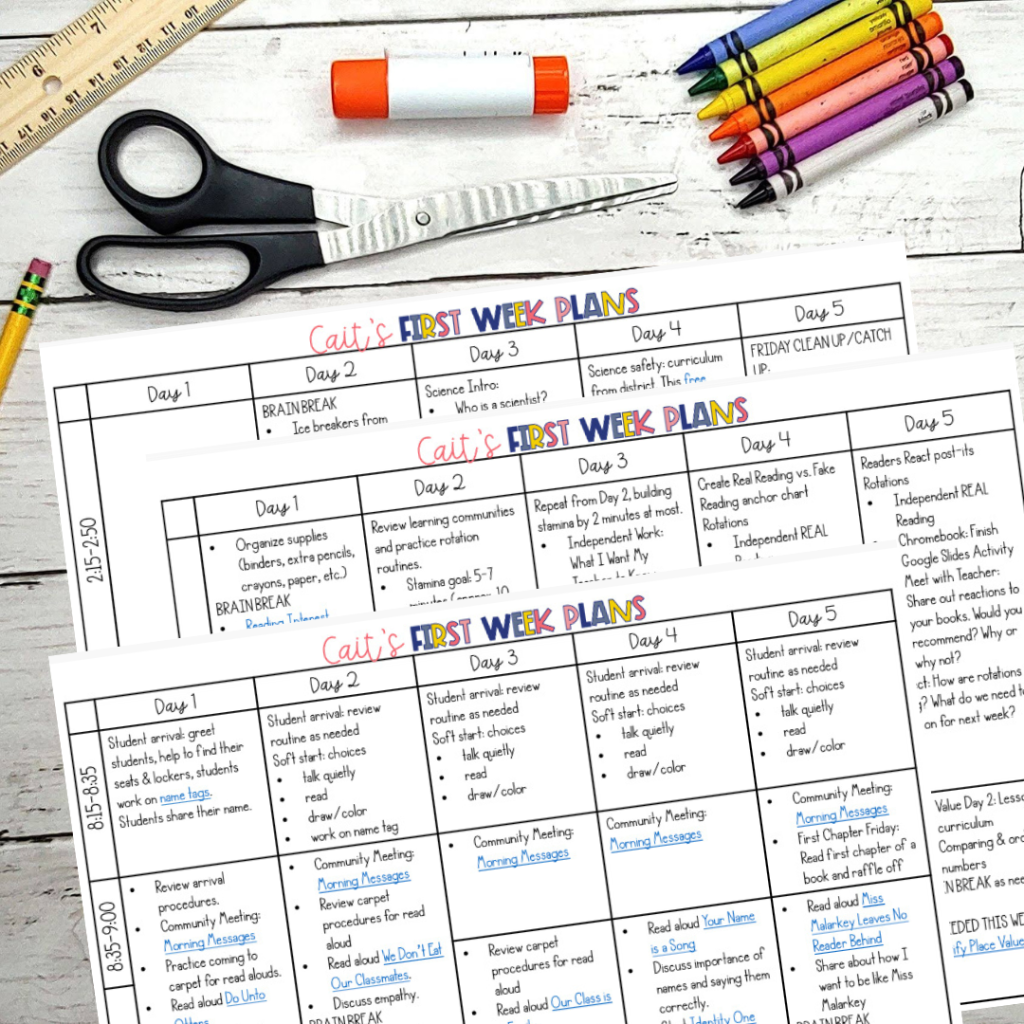
Before I start to share about parent communication, let me say two things.
1. I’m an introvert. Like extreme.
2. I communicate with children way better than adults. Which is helpful when teaching elementary aged kids but not when you need to make a phone call or set up a face-to-face meeting.
So how do I manage talking to parents? Well. I make myself do it. It’s not always hard, but I do get anxious, which is why I want to share how I’ve worked on parent communication and found a system that works.
- Parent Survey: send one out at the beginning of the year or when you get a new student. I’ve used written ones in the past, but more recently, I’ve loved Google Forms. This starts off a good relationship because it gives parents space to talk about their child. Make sure to include a preferred communication method. This cuts down on you feeling like you’re chasing a parent down and helps you mentally prepare for phone calls. Plus, I’ve had parents give me more up to date emails and phone numbers than the school.
- Newsletter Emails: This is something I just started during our virtual learning, and (as of now) I plan to keep it up once we’re fully pack in the classroom. Create a template for yourself and stick with it. I always include important dates and a note from the teacher (which sometimes just says, thanks for an awesome week!). Rotating topics include: tech tips, reminders about our missing work policy, supplies needed, or recommendations about new local programs. I send my newsletter out every Friday to help parents plan for upcoming weeks. With the abundance of emails coming from our entire county, my school, and everywhere else, having a set date and time is helpful for parents to know what to look for. Note: You could also send a physical copy home with students if you know it will get to parents! 🙂
- Emails, Notes, Phone Calls, Texts, oh my!: Remember that survey you sent out earlier? When a student starts to struggle, whether academically or behaviorally, contact their parent or guardian. Use the method of communication that works best for the parent. You should make calls from a school phone if possible, but I also recommend Google Voice as an option. Once we became virtual, my school set Google Voice up for every teacher. You can also text from Google Voice. This helps so parents won’t have access to your personal phone number, but you can get all calls and messages on your phone. #winwin For phone calls, I write down notes for myself beforehand so I know what I want to say and cover. Immediately after, I write down notes about what our next steps are. This year, I started typing up my notes in my Google Sheets.
The parent survey and regular newsletters set me up for positive parent communication throughout the year. I make sure parents know I want to talk to them, plus I keep them informed of what’s happening in the classroom. TRUTH TALK: Some weeks I copy and paste reminders in the newsletter from previous weeks. It happens. #notsorry. Think of these two as CYA work. (That’s Cover Your Ass. 😉)
The hardest thing is keeping up with individual contact. I set aside time for weekly communications in my planning time. I like to shoot for Tuesday or Wednesday (depending on my meeting schedule) and Fridays. There have been times where I schedule weekly or biweekly calls or email updates with parents.
With so many communication methods, it can be tricky to keep track of it all. More TRUTH TALK: I used to track on post-it notes shoved in a drawer. I wrote down basic info (date, phone number, student name, parent name, what was said, next steps) and let them pile up my drawer. This made life difficult when we were suddenly virtual. And then this year when we never knew exactly when we would hop back in the classroom or back to virtual. That’s why I made this Google Sheets organizer to track parent communications. It’s been very helpful for touching base with parents individually and recording the next steps. I know I have access at home and in the classroom.
This was a LOT of information, but I hope it will help you out, whether you’re just starting out or a veteran.
What are your favorite parent communication tips? I’d love to hear from you!








 The first FIVE days of lesson plans for the beginning of the year.
The first FIVE days of lesson plans for the beginning of the year.